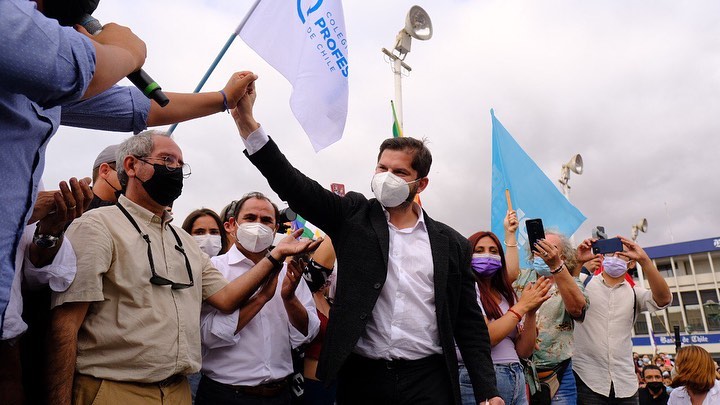
With historic turnouts, left-wing candidate Gabriel Boric has won the presidency in Chile securing 56% of the votes compared to the 44% secured by his rival Pinochet-admirer, Jose Antonio Kast.
In accepting the speech he pledged to be “the president of all Chileans” and was immediately recognised as the victor by Last who phoned him to congratulate him. At 35, Boric is set to become Chile’s youngest-ever President.
This election follows as a run of election to a fiercely contested vote in November in which Cast claimed almost 28% whilst Boris secured 26%. Political analysts have noted that Boric has since been able to secure a majority by moderating his stance to broaden his appeal to the public.
Among his pledges are to “decentralise Chile, implement a welfare state, increase public spending and include women, non-binary Chileans and Indigenous peoples like never before” write Will Freeman and Lucas Perello. They further add that it is his ultimate goal is “of extricating the country from the binds of Pinochet’s dictatorship that will define his legacy”.
In contrast, his rival Kast is of the far-right and targeted the most conservative voters in Chile. Notably, his father emigrated to Chile following WWII and was a card-carrying Nazi.
His platform focused on opposition to the influx of migrants from Venezuela and Haiti, where he proposed establishing a similar police unit to the US Immigration and Customs Enforcement. Kast also stands fiercely opposed to abortion, LGBTQ+ rights, and has stressed demands for “law and order”.
In international affairs, “he has an isolationist streak and has floated the idea of withdrawing Chile from the United Nations Human Rights Council”.
In an op-ed for Foreign Policy, Freeman and Perello emphasise that will be tasked with governing the Constitution Convention which will see a draft of a new constitution put to a national plebiscite mid-2022.
Boric has stressed this as an opportunity to end Pinochet’s entrenched legacy and enshrine socio-economic rights however Kast has vowed to reject the new constitution if assembly members "disrespect the right to free speech, freedom of worship, freedom in the classroom, or private property”.
